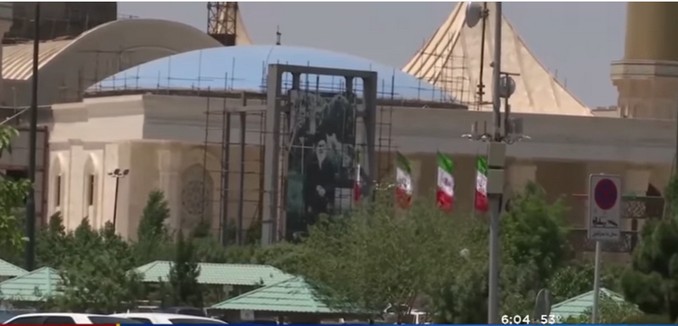Despite claiming a pair of lethal terrorist attacks that rocked Tehran on Wednesday, the Islamic State remains “essentially aligned” with Iran, a terrorism expert wrote.
At least 12 people were killed earlier in the day in twin attacks on Iran’s parliament and the mausoleum of the Islamic Republic’s founder, Ayatollah Ruhollah Khamenei. ISIS took credit for the attacks through its Amaq media network.
“Doubtless #Iran and #IS will present this event as evidence they’re locked in mortal combat. But their interests remain essentially aligned,” Kyle Orton, a terrorism expert with the Henry Jackson Society, wrote on Twitter.
The comment was one in a series of tweets reviewing the history of cooperation between Iran, al-Qaeda, and ISIS.
Orton pointed to an official statement from ISIS in 2014 explaining that it had not yet attacked Iran due to pressure from al-Qaeda.
It has often been asked why #IS has not previously attacked #Iran:
IS has answered this, blamed AQ (11 May 2014) https://t.co/UnAHj2qfvR pic.twitter.com/njymycnkyF
— Kyle Orton (@KyleWOrton) June 7, 2017
The United States Treasury Department in 2011 and 2012 designated individuals who helped al-Qaeda in Iraq, which later evolved into ISIS. Both designations referred to cooperation between Iran and al-Qaeda in accord with an “agreement between al-Qa’ida and the Iranian government.”
“#Iran publicly cracked down on al-Qaeda’s network on its territory after Treasury embarrassed them in 2011,” Orton wrote, but “by 2014, it was back to normal.”
Iran in 2014 allowed al-Qaeda terrorists to transit through its territory to fight against the regime of Syrian President Bashar al-Assad, Orton observed, citing the Treasury. “For #Iran, letting al-Qaeda move jihadists into #Syria served a dual purpose: exported trouble and helped discredit the anti-Assad rebellion,” he tweeted.
Iran has a history of assisting al-Qaeda going back to 1992, when Iran cooperated in letting al-Qaeda terrorists train in Lebanon’s Bekaa Valley, Orton noted. Iran also assisted al-Qaeda in the 1996 Khobar Towers bombing which killed 19 American servicemen, the 1998 U.S. embassy bombings in Africa, and the 2000 attack on the U.S.S. Cole.
“#Iran’s role in #Assad’s campaign—which deliberately let #IS grow, and provided the caliphate key financial and technical help—is extensive,” he continued.
Former Secretary of State John Kerry observed in December 2015 that Iran’s client, Assad, “cut his own deal” with ISIS. “They sell oil. He buys oil. They are symbiotic, not real enemies in this. And he has not, when he had a chance over four years, mounted his attacks against Daesh. The Daesh headquarters sat in Raqqa for years. It was never bombed by his bombs. It was children and women and hospitals and schools that were bombed by his bombs,” Kerry said.
Despite the claimed enmity between Shiite Iran and Sunni ISIS, a 2015 examination by security researcher Michael Pregent of where Iran-backed forces struck ISIS suggested that Tehran was allowing the terrorist group to consolidate its gains within Iraq, not to chase it out or destroy it.
[Photo: CBS New York / YouTube ]




